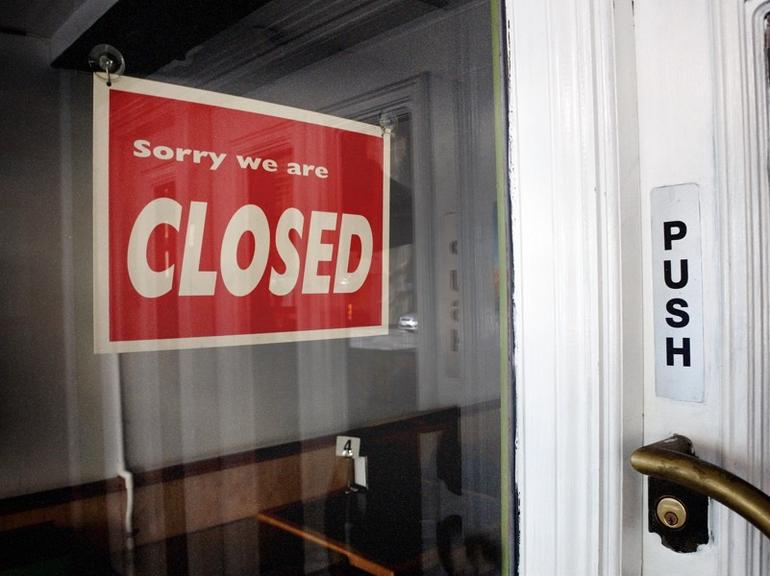As adoption of solid-state drives increases across enterprise, professional, and consumer markets, demand for traditional mechanical hard drives has decreased in recent years. While the industry is still well over a decade away from obsoleting hard drives outright, shifts in the IT landscape a will inevitably result in reduced production of platter-based hard drives.
Western Digital is reportedly closing a disk drive factory in Malaysia "by the end of 2019" in favor of a solid-state drive facility elsewhere in the country, which is scheduled to start production "in the coming months," according to a report from The Register.
This result is unsurprising, but should raise a healthy level of caution for IT professionals. Presently, the mechanical hard drive market is something of a triopoly—any new drive commercially available is manufactured either by Seagate (which continues to sell drives under the Maxtor and Samsung brands, following corporate acquisitions), Toshiba, or Western Digital, which counts HGST (formerly Hitachi Global Storage Technology) as a subsidiary.
Hard disk drives are not a growth industry, and it is unlikely that other extant technology companies or startups are likely to enter and disrupt this market. While a price-fixing arrangement could potentially result from these circumstances—as is allegedly happening with the similarly concentrated DRAM industry—this would likely only serve to increase the rate of adoption of flash storage.
SEE: Quick glossary: Storage (Tech Pro Research)
Rather, the concentration that should cause real concern is geographical. In 2017, Seagate closed a hard drive production plant in Suzhou, China, leaving the company with two remaining drive production plants—one in Wuxi, China; and the other in Korat, Thailand. The reported closure of the WD facility in Malaysia leaves that company with two remaining production plants, both of which are in Thailand—one in Bang Pa-In, the other in Prachinburi. HGST appears to have one HDD manufacturing plant in Shenzhen, China, while Toshiba's drives are mostly made in the Philippines, according to Nikkei Asian Review.
This may not be an exhaustive list—the WD facility in Prachinburi is seemingly shared with HGST, specific information about what type of manufacturing occurs, and where, is often hidden deeply in slide decks presented to shareholders, if disclosed at all. Though, in the absence of other evidence, drive manufacturing appears to occur chiefly (if not exclusively) in these six facilities, three of which are in Thailand. That does take market share into account, as Toshiba held only a 24% sales share as of Q4 2016. The aforementioned Nikkei report (from February 2018) indicates they are still in third place.
That has been a problem before. The 2011 floods in Thailand caused a major disruption to the hard disk industry, which caused disk prices to practically double overnight, and linger around those levels for about two years due to supply issues and difficulties bringing the flooded facilities back into production. At the time, a quarter of hard disk drives were manufactured in Thailand. This figure is likely set to increase as a result of the Seagate and Western Digital plant closures elsewhere in Asia. Ironically, in the wake of the 2011 floods in Thailand, a story in The New York Times quoted Gartner analyst John Monroe as saying: "Surely one of the inevitable impacts of this is that never again will so much be concentrated in so few places."
As such, the geographical concentration of HDD production, and the risk it poses to traditional hard drive prices, may be a catalyst for CXOs to finally consider a migration to solid state drives or cloud0based storage solutions.
The big takeaways for tech leaders:
- Hard disk drive manufacturers are closing manufacturing facilities due to decreased demand for traditional mechanical hard drives.
- In result, the industry is becoming too concentrated in Thailand. Prior floods in Thailand caused massive disruptions in the hard drive market.
Also see
- Cloud v. data center decision (ZDNet special report) | Download the report as a PDF (TechRepublic)
- Do helium-filled hard drives have a lower failure rate? (ZDNet)
- Unstructured data: A cheat sheet (TechRepublic)
- Intel, Micron's first-ever QLC NAND flash: Cheaper, denser SSD storage is coming (ZDNet)
- How Intel Optane DC Persistent Memory could up capacity, lower cost of in-memory databases (TechRepublic)

Full Bio
James Sanders is a Tokyo-based programmer and technology journalist. Since 2013, he has been a regular contributor to TechRepublic and Tech Pro Research.







Disqus seems to be taking longer than usual. Reload?